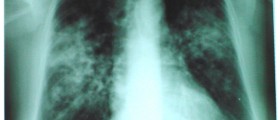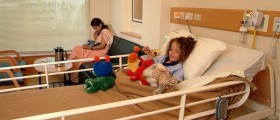
There are about 600 lymph nodes spread throughout the human body. Lymph nodes and the lymph inside are responsible for the detection and removal of infectious organisms and other debris, and as the result of their primary action, these lymph nodes may become enlarged.
This condition is known as lymphadenopathy and may be caused by many different things. There are benign causes of lymph node enlargement, and also those of a malignant nature. Additionally, there are “shotty” lymph nodes in the human body, which may become palpable after a viral infection.
About Lymphadenopathy
The enlargement of one or multiple lymph node(s) is a very common problem in children. The causes of benign lymphadenopathy are usually an immune response to some infection in the body (which can be of fungal, bacterial, or viral origin) and infections of the lymph node.
Metastasis of neoplastic changes in the body (more precisely the neoplastic cells carried through the lymph or blood flow), some neoplastic proliferation of macrophages or lymphocytes, such as leukemias and lymphomas and storage disorders when the macrophages filled with metabolite deposits infiltrate the lymph node may also provoke malignant enlargement of a lymph node.
In children, lymphadenopathy should be diagnosed fairly quickly. The duration of this condition is usually the predominant factor in making treatment decisions. What parents should know is that benign problems related to enlargement of lymph nodes usually last for 4 to 6 weeks, while progression of the symptoms or persistent enlargement of lymphadenopathy could indicate a malignant change.
Common Causes of a Benign Enlargement of the Lymph Nodes
Localized enlargement of a lymph node or local cluster of lymph nodes is generally associated with acute medical abnormalities, like an infection of the area of the body which this lymph node drains. However, localized condition may also point to progressive systemic disease in some cases.
Acute bacterial infections, especially with Staphylococcus aureus or group B of Streptococci, are very often seen to cause benign lymphadenopathy. These bacteria can provoke tenderness and warmth of the lymph nodes and erythema and edema of the surrounding tissue. While this can be frightening to patients and should always be checked out, the most serious cause, cancer, should not be suspected right away.
Lymhadenopathies and Enlargement of Submental Lymph
Occipital and preauricular lymhadenopathies are usually benign problems, caused by acute infections of the outer ear, scalp, toxoplasmosis or some exenthematous disease, as well as infections of the middle ear, parotid glands or superficial tissue of the orbit.
Enlargement of submental lymph nodes may be provoked by disorders of the mouth, lower lip, nose, maxillary sinus, salivary gland or submandibular part of the face.
Inflammations, STD's and Other Causes of Enlarged Lymph Nodes
Inflammation of the hypopharynx, larynx, thyroid gland or esophagus may be responsible for laterocervical lymphadenopathy.
A person suffering from axillary or inguinal enlargement of the lymph nodes may have an infection of the arms, intrathoracic lesions, chest wall or breast tissue. STDs (sexually transmitted diseases) and some other infections of the pelvis and perineum may also lead to inguinal lymphadenopathy.
Infections of the foot and leg could provoke popliteal lymphadenopathy, while compression of the surrounding structures may result in enlargement of lymph nodes in the mesentery, retroperitoneum or mediastinum.
Any patient who believes their lymph nodes are inflamed or enlarged should seek prompt medical attention so that the cause can be evaluated, but do not panic.
















Your thoughts on this
Loading...